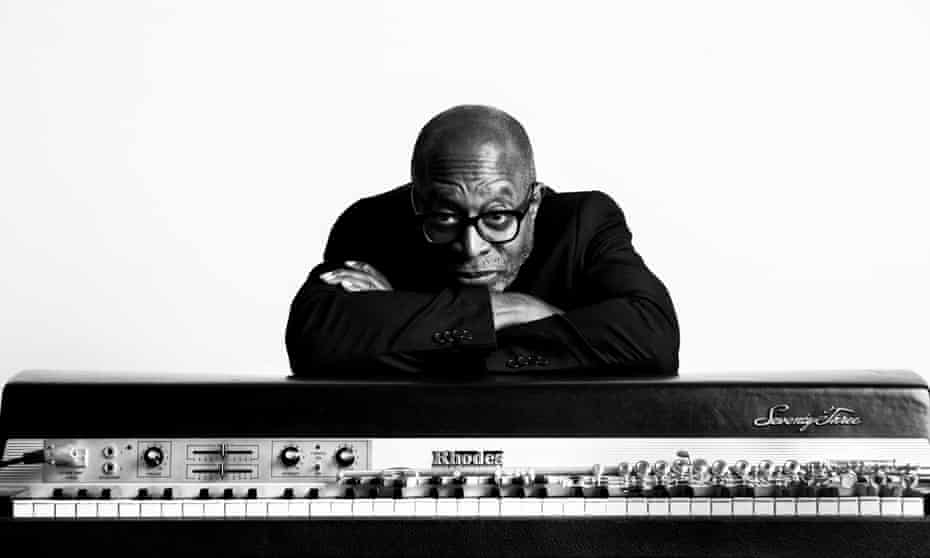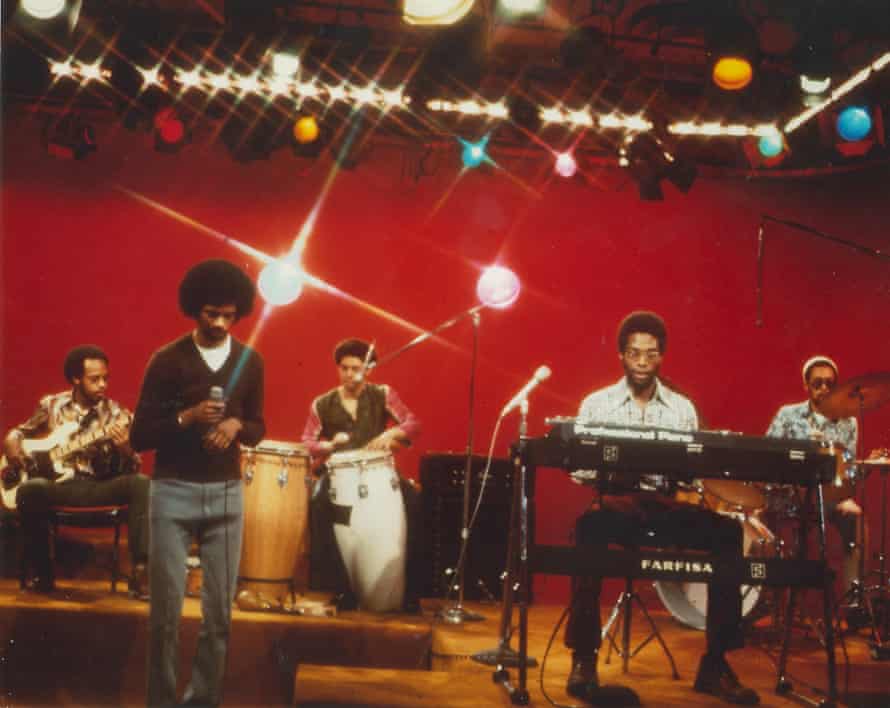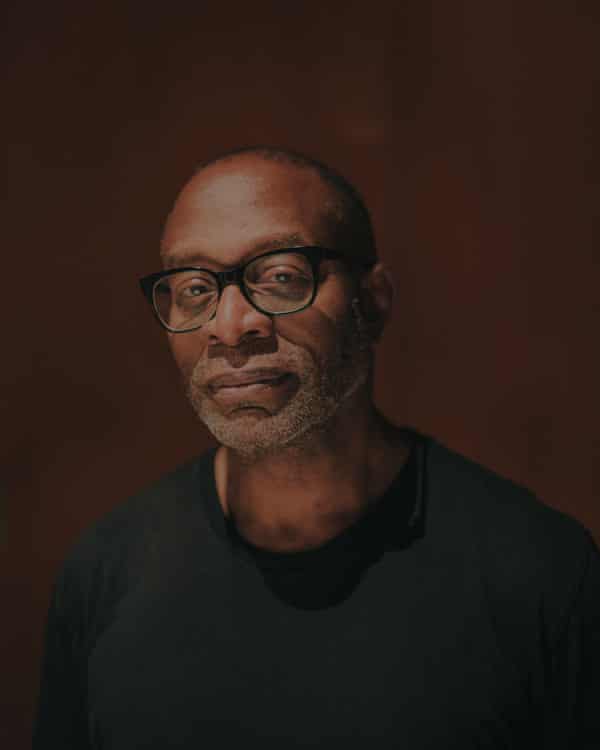An Atlanta based, opinionated commentary on jazz. ("If It doesn't swing, it's not jazz", trumpeter Woody Shaw). I have a news Blog @ News . I have a Culture, Politics and Religion Blog @ Opinion . I have a Technology Blog @ Technology. My Domain is @ Armwood.Com. I have a Law Blog @ Law.
Visit My Jazz Links And Other Websites
Atlanta, GA Weather from Weather Underground
Jackie McLean
John H. Armwood Jazz History Lecture Nashville's Cheekwood Arts Center 1989
Saturday, April 30, 2022
Thursday, April 28, 2022
‘I was consumed with anger’: Brian Jackson, Gil Scott-Heron’s brilliant, badly wronged partner | Music | The Guardian
‘I was consumed with anger’: Brian Jackson, Gil Scott-Heron’s brilliant, badly wronged partner

“Hands up who thinks Gil Scott-Heron was one of the 20th century’s greatest poets?” Brian Jackson asks the audience at London’s Jazz Cafe. A sea of hands rise and Jackson nods in approval before launching into Your Daddy Loves You, a song he and Scott-Heron first recorded in 1974, and one of dozens the pair would write together. Upon finishing, Jackson states: “The man who wrote those words was in his early 20s and wouldn’t become a father for several more years. Think about it: Gil could inhabit the spirit of a song. He communicated like few do.”
No one is disagreeing and, when I meet Jackson the following afternoon, his praise for Scott-Heron remains effusive. “Gil had a remarkable maturity about him,” says Jackson. “He was capable of real insights into people, so could write from their situation. There was no posturing in his writing. He was something else.”
Something else, indeed. Yet Scott-Heron would never have achieved musical greatness without Jackson at his side. “The Revolution Will Not Be Televised is all Gil’s work – I had nothing to do with that as it’s essentially a poem or a rap,” Jackson says. “But the rest of the songs, I wrote much of the music for them. I was always writing music and playing it to Gil, and he would be writing words, and then we would be matching things up.”
The two met at Lincoln University, Pennsylvania’s historic Black college, in 1969, each impressed by the other’s abilities – Scott-Heron, 20, already displaying remarkable prowess as a poet/novelist, while Jackson was a 16-year-old piano prodigy. You two, I suggest, must have felt like long-lost brothers.

“We were brothers,” corrects Jackson. “Gil was the brother I never had and I was the brother he never had. We had so much in common: both only children who were raised by our mothers and estranged from our fathers. Our mothers pushed us to succeed academically and we both enrolled at Lincoln because Langston Hughes went there.”
Very quickly Scott-Heron and Jackson began writing songs together. Scott-Heron then paid a visit to Bob Thiele, founder of Flying Dutchman Records, hoping his artists might consider recording their efforts. Thiele was a jazz industry magus – producer of John Coltrane, Charlie Mingus and Duke Ellington; co-writer of What a Wonderful World – who, it turned out, knew Scott-Heron’s poems. Having produced Jack Kerouac’s 1959 album Poetry for the Beat Generation, he suggested recording Gil reading with percussionists, and promised that if the album Small Talk at 125th and Lenox sold OK he would record the duo. It did, and in April 1971 Thiele asked Jackson which musicians he wanted as accompanists. Jackson, partly tongue in cheek, suggested the leading jazz musicians Ron Carter (bass) and Hubert Laws (flute). He got them, along with the drummer Bernard Purdie (Aretha Franklin’s musical director).
“I was 18 and had never set foot in a recording studio before,” recalls Jackson, “and here I was directing these legends. At first, I was terrified but Ron Carter, after some gentle teasing, made me feel welcome. Everything went brilliantly.”
Pieces of a Man, their 1971 album, established Scott-Heron as a unique voice and sold a respectable 30,000 copies. Gil soon insisted Brian’s name be alongside his and, from 1974’s Winter in America up to 1980’s 1980, every album they recorded was credited – at least on the album covers – to Gil Scott-Heron and Brian Jackson. Signed by Clive Davis to Arista Records, the two lived, worked, wrote and toured together.
“My best memories of that time are being at home and watching TV with Gil,” says Jackson. “We’d see how corporate America was trying to infiltrate our minds and, out of that, wrote a lot of songs.”
Over the course of nine years the duo released nine albums, their fluid blend of jazz-funk topped with Scott-Heron’s incisive observational lyrics saw them scoring club hits with The Bottle, Johannesburg and Angel Dust. Yet their albums never sold in large quantities, which necessitated constant touring. “One year we were on the road for 270 days,” says Jackson. “That’s exhausting and it’s not conducive to creativity.” Musical differences started to erode the fraternal bond, too. “I was trying to not just do the same old thing, and I think this alienated Gil. He did make it clear to me that he felt unhappy with how things were going. He saw himself as, I guess, closer to a blues poet while I was very engaged in jazz. I’m not trying to suggest Gil didn’t love jazz, but he was finding the music I was playing more difficult to get his head around.”
After the release of 1980 Jackson requested time off. “I just felt we needed to refresh ourselves,” he says. “I didn’t realise Gil would re-sign to Arista as a solo artist.”
This ended one of popular music’s great partnerships. Both Jackson and Scott-Heron would struggle without their “brother” beside them: Scott-Heron released three post-Jackson albums on Arista over the next two years – all suggest entropy – before effectively ceasing to record. Jackson played sessions then, in 1983, started working as a project manager in the City of New York’s IT department. “I didn’t stop doing music,” he says, “but I needed to pay my bills.” That year, his royalty payments had dried up. “Turns out Gil had removed my name from the publishing and, when I looked into it, dissolved our company Brouhaha Music in 1980. That was our publishing company, his and mine, but he’d dissolved it without telling me.”
He believes that he missed out on other payments, from Strata-East, the independent jazz label that put out Winter in America. “I’m sure they kept on paying us as they were a very honourable label, but Gil just held on to the money.” Jackson also accepted having his name left off many of the actual songwriting credits because he “wanted people to recognise how great a songwriter Gil was”; he did receive a co-writer credit on a selection of their recordings but often Scott-Heron took sole credit, even while admitting that songs such as Lady Day and John Coltrane owed their musical structure to Jackson (“Brian was integral,” he wrote in his posthumous memoir The Last Holiday).
Jackson reconsiders his earlier answer: “Actually, I did stop making music for four years. I was consumed with anger about what had happened and how Gil had treated me. A friend suggested I take up a martial art to deal with my anger and it proved a great help. It was my kung fu master who pointed me back towards music, telling me: ‘Brian, you are a musician – make music.’ And so I did.”
Jackson didn’t rush his comeback. Relations with Scott-Heron improved a little and they toured South Africa in 1998; he released an underwhelming solo debut, Gotta Play, in 2000 and played sessions, all while working his day job. Retiring three years ago, he is now busy: 2021 saw the release of Jazz Is Dead 8, an instrumental album where he teams up with producers Adrian Younge and Ali Shaheed Muhammad, while This Is Brian Jackson, released in May, rescues three tracks he recorded in 1976 alongside five new compositions. The album is Jackson’s classic warm jazz-funk, with the track Mami Wata employing an Afrobeat rhythm, while Path to Macondo/Those Kind of Blues meditates on African American music’s origins, akin to what he and Scott-Heron recorded during their heyday.
“In 1976, I started working on a solo album but was forced to stop because, back then, recording was so expensive,” says Jackson. Decades later, Daniel Collás of the New York funk-poppers Phenomenal Handclap Band suggested he be Jackson’s producer. “I was intrigued at the suggestion and, as we began working together, I mentioned the 1976 demos. Daniel loved that we could combine then and now.”
Jackson looks considerably younger than his 69 years and exudes youthful enthusiasm, but I detect a deep sadness in him, particularly when I ask him if he gets paid when the likes of Kanye West sample tracks such as Home Is Where the Hatred Is.
“No,” he replies. Taking a deep breath, Jackson adds: “I did think of suing Gil, but I had to decide whether I fed my children or a lawyer’s children. I chose the former.

Silence follows and I wonder if Brian’s love for Gil has held him back: the youngster still in awe of his taller, fiercely eloquent, older “brother”. Not wishing to make him uncomfortable I don’t pursue this, so I ask as to whether Scott-Heron’s cocaine use was another factor in their relationship disintegrating.
“It wasn’t just Gil using cocaine,” replies Jackson. “Everybody was, including me. But I realised that spending $200 to get high for 15 minutes wasn’t for me. Gil, well … I got asked to play with him in 1994 and I hadn’t seen him for 14 years. I’d heard rumours but ignored them. Then he came on stage and … and it was a shock. He looked awful.”
By then Scott-Heron had become a spectre of sorts: addicted to crack cocaine, he resembled a scarecrow – impossibly gaunt, teeth missing, his once mellifluous voice reduced to a husk. Several stints in prison (owing to drug-related convictions) ensured the man who once wrote so insightfully on addiction became akin to his songs’ characters. Scott-Heron’s 2010 album I’m New Here – constructed by Richard Russell from very little – was his first release since 1994’s Spirits and brought him intense attention. A 2010 New Yorker profile found Gil chain-smoking crack and being obnoxious. Pressed about Jackson not receiving publishing royalties, he replies: “Somebody should have pushed the mute button on that motherfucker.”
When Gil Scott-Heron died in 2011 the many rappers, singers and musicians he inspired paid fulsome tribute. Now, more than a decade on, the music Jackson and Scott-Heron made is heard everywhere, and Jackson is reclaiming his role in it by performing their songs with great joy and generosity. It seems living well is the best reward.
“As a child I heard Parisian Thoroughfare [recorded by Max Roach and Clifford Brown] and it enchanted me,” says Jackson. “How music could paint a picture of a place. Since then music’s been what I’ve always wanted to do. I’m so happy to be back.”
Brian Jackson plays Cheltenham jazz festival on 2 May. This Is Brian Jackson is released by BBE on 27 May.